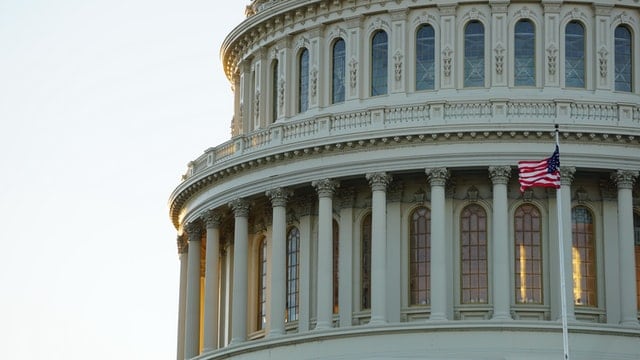
Fred Messner is a student at Harvard Law School.
The weekend brought a number of developments in the evolving Senate negotiations over President Biden’s $3.5 trillion budget package. On Sunday evening, the Senate Parliamentarian opined that a measure creating a pathway to citizenship for millions of undocumented immigrants did not have a significant enough impact on the federal budget to merit inclusion in a bill passed through the reconciliation process. Although the Parliamentarian—an unelected staffer who serves at the pleasure of the majority—cannot bind the Senate in any formal sense, Senate Democrats continue to treat her rulings as definitive, eschewing the sharper-elbowed approach embraced by Republicans in recent years. Elsewhere in budget negotiations, the New York Times reports on emerging fissures in the Democratic caucus over how to structure an expansion of federal healthcare benefits. According to the Times, Southern Democrats have advocated for immediate coverage of the 4.4 million working poor people in the states that have refused to expand Medicaid under the Affordable Care Act. Meanwhile, other parts of the caucus are “adamant” about seizing this opportunity to provide dental, hearing, and vision coverage to older Americans through Medicare.
Finally, Bloomberg Law explores the debate over the inclusion of new labor law penalties in the bill. Lifted from the PRO Act, the proposed provisions would empower the NLRB to impose penalties of up to $50,000 per infraction on first-time violators of the NLRA and up to $100,000 for certain repeat offenders. While employer groups have asserted that the reconciliation process has never been used to institute new fines, there appears to be “ample precedent” for doing so, and the prevailing wisdom is that the penalties’ clear connection to the federal budget will suffice to keep them in the bill.
Turning to the labor market, the Washington Post reported yesterday on the exodus of daycare workers and its “ripple effects” on the broader economy. According to the Post, over 10,000 daycare workers quit this summer as the gap between daycare wages—which average just over $12 per hour—and those of other sectors grew too stark to ignore. As the summer draws to a close, childcare employment is still down over 120,000 jobs from its pre-pandemic peak, and more than a third of child-care providers are considering closing down their businesses in the next year. The recent turmoil illustrates the “broken[ness]” of the American approach to childcare. As Treasury Secretary Janet Yellen explained, families spend well north of 13% of their income on childcare, yet daycare workers earn “so little they rank in the bottom 2 percent of all professions.” And when low-margin childcare businesses are forced to raise prices to support higher wage levels, the burden largely falls on young families with either a single parent or two working ones. As one commentator put it, without state intervention to restructure the childcare sector—which President Biden has proposed in the American Families Plan—“[t]ight labor markets mean tight labor markets” for everybody.
Looking beyond the United States, Mother Jones investigated working conditions on sugar plantations in the Dominican Republic, cataloging the “high human cost of America’s sugar habit.” The entire article is worth exploring, not least for its striking photojournalism, but one point in particular stands out. As one local priest and worker advocate noted, in these self-contained plantations “[t]he company is the judiciary. They are the police. They are the ones who rule over everyone’s life.” As American employers begin to show renewed interest in “factory towns”, it is worth examining how workers have experienced those settings—both here and abroad.






Daily News & Commentary
Start your day with our roundup of the latest labor developments. See all
July 4
The DOL scraps a Biden-era proposed rule to end subminimum wages for disabled workers; millions will lose access to Medicaid and SNAP due to new proof of work requirements; and states step up in the noncompete policy space.
July 3
California compromises with unions on housing; 11th Circuit rules against transgender teacher; Harvard removes hundreds from grad student union.
July 2
Block, Nanda, and Nayak argue that the NLRA is under attack, harming democracy; the EEOC files a motion to dismiss a lawsuit brought by former EEOC Commissioner Jocelyn Samuels; and SEIU Local 1000 strikes an agreement with the State of California to delay the state's return-to-office executive order for state workers.
July 1
In today’s news and commentary, the Department of Labor proposes to roll back minimum wage and overtime protections for home care workers, a federal judge dismissed a lawsuit by public defenders over a union’s Gaza statements, and Philadelphia’s largest municipal union is on strike for first time in nearly 40 years. On Monday, the U.S. […]
June 30
Antidiscrimination scholars question McDonnell Douglas, George Washington University Hospital bargained in bad faith, and NY regulators defend LPA dispensary law.
June 29
In today’s news and commentary, Trump v. CASA restricts nationwide injunctions, a preliminary injunction continues to stop DOL from shutting down Job Corps, and the minimum wage is set to rise in multiple cities and states. On Friday, the Supreme Court held in Trump v. CASA that universal injunctions “likely exceed the equitable authority that […]